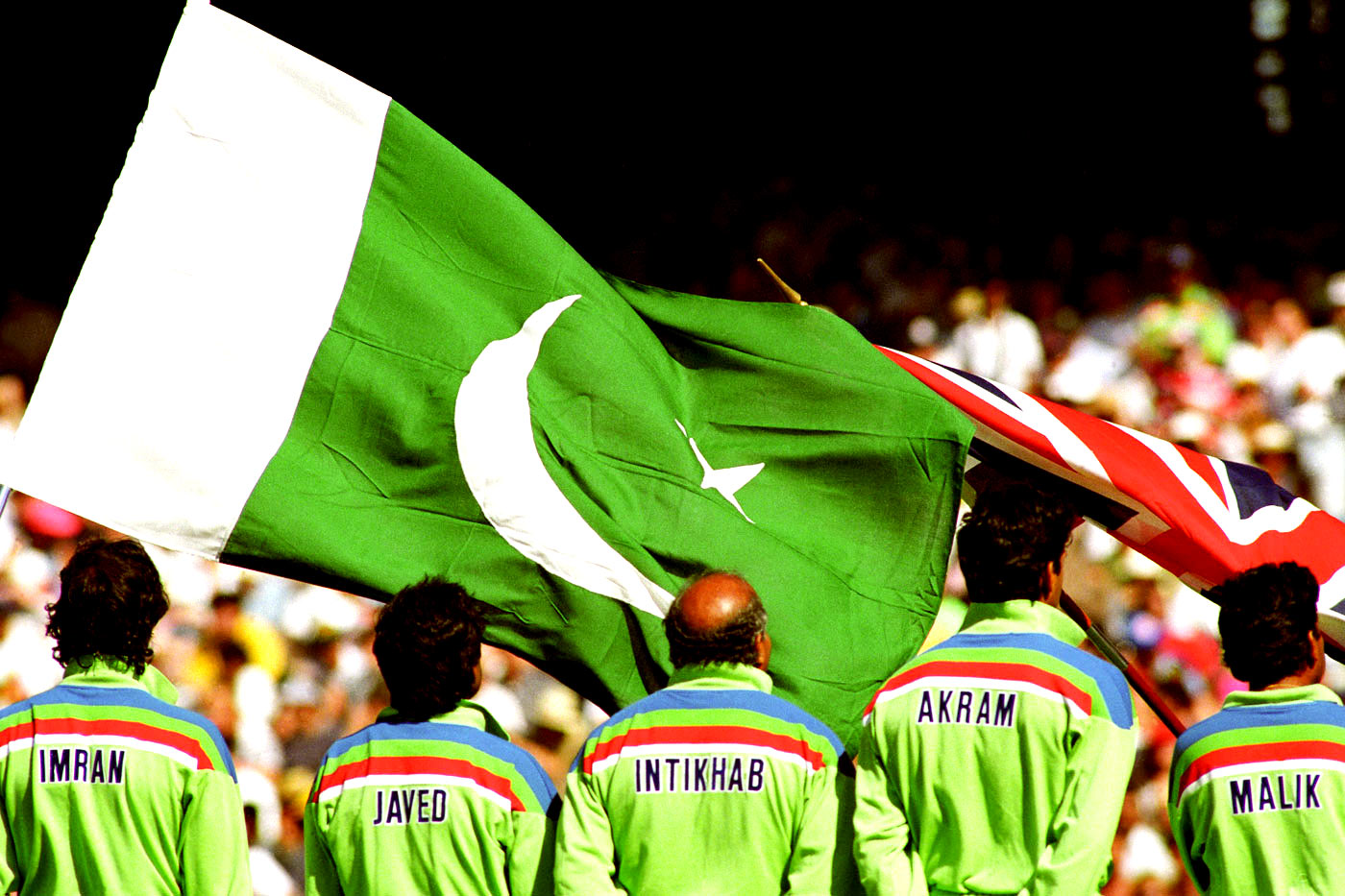
Despite his successful Test captaincy and achievements off the field,
Imran Khan is best remembered for Pakistan's 1992 World Cup win © PA
Yet when we come to think of it, it is increasingly true of the modern game that winning the World Cup is the pinnacle of the sport. There is no higher achievement - not just in terms of the prizes but also in the eyes of the majority of the fans (though perhaps not of the most knowledgeable ones). Test matches might be the biggest test and T20s might make you wealthy, but winning the World Cup is what unites critical and commercial acclaim.
The World Cup stands as a sole moment of clarity and unification in what is otherwise an always-vague schedule. Though the event started as a sideshow, the years have served to increase the value of what winning the title means. When we think of Clive Lloyd's legacy and celebrate his team, we don't focus mainly on the back-to-back World Cup wins, although they are part of the discussion. But, in contrast, when we think of Kapil Dev, Arjuna Ranatunga and MS Dhoni, captaining a World Cup-winning team is central to their legacy.
No one embodies the power of this legacy better than Imran Khan. He was arguably the game's greatest captain, a phenomenal allrounder who collected many achievements. But it was his lucky victory in a tournament he played while injured and past his prime that sealed the deal. Even now, as he has become the most charismatic politician in Pakistan, he and his hordes of supporters (most of whom are too young to have ever seen him play) keep bringing up the World Cup as his and the nation's greatest achievement. Indeed, despite all that he has done since, it feels impossible to imagine Imran's political career without the World Cup.
The exception here might be the Australian captains who won it. This is largely because in Australia (to a large extent) and in England (absolutely) Test cricket remains the most valued format. For Allan Border and Steve Waugh, there was a much grander narrative about their captaincy in which the World Cup was one chapter. But it can be argued that the consecutive World Cup wins for Ricky Ponting were the greatest redemption of his captaincy, given that he was the only Australian captain to lose the Ashes three times.
Australia's dominance is one of the under-represented reasons for the long discontent with the tournament. Since 1992, no two consecutive tournaments have been completely alike in their formats. The World Cup is seen as too long and containing too many one-sided matches. The Associates are praised for pulling off the biggest upsets and simultaneously blamed for providing most of the boring games.
Yet I feel the fact that Australia didn't lose a single match in 2003 and 2007 (the two most criticised editions, in terms of formatting) probably went a long way in leaving a sour taste. It can't be much fun to wait four years for a forgone conclusion.
This is why 2011 seemed to avoid some of the opprobrium, since it was a far more open tournament. That is even truer for 2015, where several teams (particularly all three from the southern hemisphere) look capable of winning the big prize. On paper no one compares to South Africa, but such is their history that even if they win every match en route to the trophy, it will come as a major shock.
With the exception of perhaps Michael Clarke (and maybe not even him) every other captain playing in 2015 will become one his country's greatest players if he leads his team to the cup.
Perhaps this is stating the obvious, but in all our talk of rankings and ratings and formats, we can sometimes forget the simple, magnificent charm of the World Cup. Here's to a great tournament!






0 comments:
Post a Comment